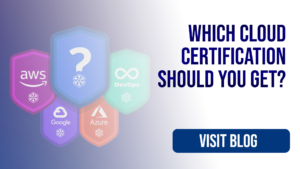Selecting the right Microsoft certification depends on your career goals, expertise level, and area of interest within the Microsoft ecosystem. Here’s a breakdown of Microsoft certifications to help you determine which one is right for you:
1. Microsoft Certified: Azure Fundamentals:
– Suitable for individuals new to Azure cloud services.
– Provides foundational knowledge of cloud concepts, Azure services, security, privacy, compliance, and pricing.
2. Microsoft Certified: Azure Administrator Associate:
– Geared towards administrators who implement, manage, and monitor Azure solutions.
– Focuses on tasks such as managing subscriptions and resources, implementing and managing storage, deploying and managing virtual machines, configuring and managing virtual networks, and securing identities.
3. Microsoft Certified: Azure Developer Associate:
– Designed for developers who build and deploy cloud solutions on Azure.
– Focuses on designing, building, testing, and maintaining cloud solutions, including applications and services.
4. Microsoft Certified: Azure Solutions Architect Expert:
– Aimed at architects who design and implement Azure solutions.
– Requires expertise in compute, storage, networking, and security, as well as a deep understanding of Azure services and their integration into cloud solutions.
5. Microsoft Certified: Azure AI Engineer Associate:
– For AI engineers who design and implement AI solutions using Azure services.
– Focuses on machine learning, natural language processing, computer vision, and conversational AI.
6. Microsoft Certified: Azure Data Scientist Associate:
– Suitable for data scientists who apply data science and ML techniques to solve business problems using Azure services.
– Covers data exploration, feature engineering, model development, and deployment using Azure ML services.
7. Microsoft Certified: Azure DevOps Engineer Expert:
– Geared towards DevOps engineers responsible for implementing and managing Azure DevOps solutions.
– Focuses on designing and implementing DevOps practices for continuous integration, continuous delivery, monitoring, and feedback.
8. Microsoft Certified: Azure Security Engineer Associate:
– Designed for security engineers who implement security controls and threat protection, manage identity and access, and protect data, applications, and networks in Azure.
Consider the following factors when choosing a cloud certification:
Relevance to Your Career Goals: Select a certification that aligns with your career aspirations and the cloud platforms commonly used in your desired industry.
Level of Expertise: Choose a certification that matches your level of expertise, whether you’re a beginner, intermediate, or advanced professional.
Market Demand: Research the demand for specific cloud certifications in the job market and prioritize those that are highly sought after by employers.
Training and Exam Format: Evaluate the training resources available and the format of the certification exams to ensure they suit your learning style and preferences.
Ultimately, the best cloud certification for you is one that enhances your skills, boosts your career prospects, and aligns with your professional goals. Take the time to research and evaluate your options before committing to a certification program









Leave a reply